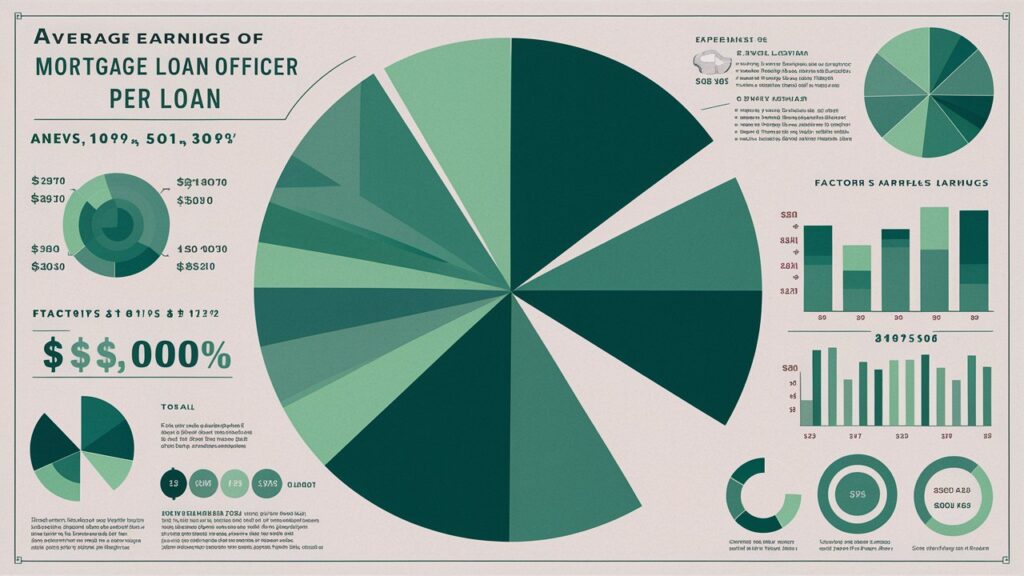Consumer finance accounts are loans or credit lines used for personal expenses. They can include credit cards, personal loans, auto loans, or even mortgages. While they can be helpful financially, they come with interest and fees that can add up over time.
Introduction
A consumer finance account is a financial account specifically designed for individuals to manage their personal borrowing and spending. This includes many financial solutions and offerings provided by banks, credit unions, and alternative financial entities, facilitating individuals to obtain loans, access credit, and fund acquisitions. These accounts can range from credit cards and personal loans to lines of credit and instalment loans. Consumer finance accounts are crucial for facilitating major life purchases such as homes, cars, and education, as well as for managing daily expenses and improving credit scores.
Types of Consumer Finance Accounts
A consumer finance account is a type of financial account that provides individuals with credit or loan facilities to purchase goods and services or manage personal expenses. These accounts are pivotal in facilitating consumer spending and financial management. Several consumer finance accounts, including credit card accounts, offer revolving credit, allowing for repeated borrowing up to a specific limit. Personal loan accounts provide lump-sum amounts that are repaid over a fixed term, often used for more extensive, one-time expenses. Auto loans are tailored for vehicle purchases, enabling ownership through structured payments. Mortgage accounts are designed for real estate acquisitions, offering long-term financing for home buyers. Lastly, retail finance accounts associated with specific stores or brands offer financing options directly at the point of sale, often with promotional terms. Each type serves distinct financial needs, empowering consumers with flexibility and access to necessary funds.
Savings Accounts:
At the heart of personal financial management, savings accounts are vital for amassing emergency reserves and supporting short-term financial planning. They provide a reliable venue for depositing funds, alongside the benefit of accruing interest. This makes them a vital tool for financial readiness and achieving near-term monetary objectives. As a fundamental aspect of consumer banking, they are instrumental for anyone intent on protecting their financial future from unexpected costs.
Checking Accounts:
Checking accounts is a crucial element in consumer banking. They are tailored for regular financial transactions and streamlined funds management. They offer an efficient way of handling bill payments, cash withdrawals, and deposits, serving as the essential framework for personal monetary affairs. Their versatility enables routine financial operations, rendering them a core part of managing personal finances.
Credit Accounts:
These accounts, which include credit cards and revolving credit lines, are central to developing and enhancing a credit history. They provide the flexibility to borrow up to an established limit, facilitating the chance to create a reputable credit standing. Prudent management of these accounts is key to improving one’s financial reputation, which is vital for securing future financial opportunities.
Loan Accounts:
These accounts incorporate personal, vehicle, and housing loans and cater to the financing requirements for substantial acquisitions. They enable the procuring of significant assets, like cars and homes, via organized repayment schemes. Each type of loan account is designed to fulfil a particular financial necessity, presenting customized options within consumer finance for achieving significant monetary ambitions.
Investment Accounts:
This category includes brokerage and retirement savings accounts, which are focused on fostering long-term financial growth and security. Through these accounts, individuals can invest in a range of securities to expand their wealth and ensure financial stability into retirement. They play a crucial role in strategic financial planning and the realization of long-term goals, underscoring the comprehensive role of consumer finance accounts in promoting overall financial health.
Characteristics of Consumer Finance Accounts
Consumer finance accounts span a wide array of financial services tailored to address the varied needs of customers. They are distinguished by several key characteristics, such as ease of access and offering multiple points of entry for users from all financial standings. The versatility of these accounts is evident, as they are designed for a range of uses, including daily operations, savings, borrowing, and investing, thus supporting both immediate needs and future ambitions. Additionally, they often provide opportunities for earning interest or building credit, contributing to personal financial advancement. Security protocols are critical in safeguarding users’ economic resources and confidential information. Understanding consumer finance accounts means appreciating these attributes that aid in efficient financial management and empower users.
Ease of Access:
The convenience offered by accessing online banking services and mobile apps revolutionizes the management of consumer finance accounts, making it a smooth and effortless process. Accessibility from anywhere, whether at home or while mobile, means managing your finances is as simple as a few clicks. Maintaining control over your finances has become increasingly straightforward, with functionalities like checking balances, transferring funds, and paying readily available bills.
Interest Rates:
Grasping the impact of interest rates on your savings and borrowing accounts is vital for optimizing your financial outcomes. Attractive interest rates on savings accounts lead to more significant accumulation over time. In contrast, lower interest rates on borrowings result in reduced monthly outlays and overall interest costs. Monitoring these rates is critical to making educated financial decisions.
Fees and Charges:
Although consumer finance accounts provide numerous advantages, they typically come with various fees. Charges for account maintenance, overdrafts, ATM use, and other transactions are common. Awareness of these fees enables effective budgeting and helps avoid unnecessary expenditures, ensuring your finances are efficiently utilized.
Rewards and Incentives:
Various consumer finance accounts offer rewards and incentives to encourage usage and build customer fidelity. These benefits include points programs, cashback on expenditures, travel perks, and insurance protections. Leveraging these rewards allows you to extend your financial reach and gain additional value from your banking products.
Selecting the Ideal Consumer Finance Account
The process of selecting the ideal consumer finance account necessitates an understanding of what these accounts entail, alongside a careful consideration of your personal financial circumstances and aspirations. Whether your focus is on opening a savings account, a checking account, obtaining a credit card, or securing a loan, essential aspects of reviewing include ease of access, interest rates, associated fees, and charges, in addition to any rewards and benefits offered. Through comprehensive research and comparison of various options, you can pinpoint the account that best matches your preferences and effectively aids in reaching your financial targets.
Key Considerations Based on Financial Goals and Requirements
Identifying the most fitting consumer finance account for your needs involves an in-depth evaluation of factors that resonate with your financial aims and requirements. Whether your goal is to set aside funds for the future, streamline daily financial operations, enhance your credit score, or engage in investments, it’s critical to tailor your account selection to your specific objectives. Accounts vary widely in their focus and benefits, so matching an account’s features with your personal goals is essential for achieving high satisfaction and utility from your banking choice.
Exploring Offerings Across Different Financial Institutions
A crucial step in choosing your consumer finance account is to compare what different banks and financial entities offer. A closer look at interest rates, fees, ease of use, and the extra benefits provided allows for a well-informed choice. Financial institutions often differentiate themselves with distinct features or advantages, making it essential to explore various options to find one that closely aligns with your financial goals and personal preferences. A thorough comparison not only aids in creating a knowledgeable decision but also in selecting a consumer finance account that promotes your financial health and prosperity.
The Significance of Consumer Finance Accounts in Financial Strategy
Consumer finance accounts are integral to crafting effective financial strategies, providing the critical instruments for proficient personal finance management. These accounts, which include savings, checking, credit, and loan options, lay the groundwork for structuring and enhancing financial assets. They cater to various financial needs, from earmarking funds for near-term objectives and accumulating emergency reserves to establishing a credit footprint and securing funds for significant expenditures. Utilizing the diverse features and advantages these accounts offer enables individuals to forge all-encompassing financial strategies that resonate with their ambitions, bolster financial security, and support long-term wealth growth.
Budget Management: Utilizing Various Accounts for Expense Control
Consumer finance accounts are vital for budget management, delivering diverse functionalities for efficient expense oversight. Checking accounts, for example, serve as ideal tools for monitoring everyday expenditures, whereas savings accounts are perfect for segregating money for future bills or discretionary spending. Furthermore, many financial institutions provide budgeting aids that allow customers to dynamically classify spending and track their economic well-being, enhancing financial planning and discipline.
Savings: Tactics for Emergency Funds and Goal Achievement
In savings, consumer finance accounts present effective mechanisms and strategies for establishing emergency reserves and realizing financial ambitions. Savings accounts offer a secure and reachable venue for accumulating funds reserved for unforeseen costs or long-term objectives. Features such as automatic transfers and goal-oriented tools aid savers in maintaining focus and adherence to their savings regimen, fostering a disciplined approach to accumulating funds.
Investment: Diversification Benefits Across Account Types
Consumer finance accounts also contribute significantly to investment strategies by facilitating diverse investment avenues. Beyond the essential savings and checking accounts, individuals can venture into investment-oriented accounts like brokerage accounts, retirement savings plans, and mutual funds. Investing across various accounts allows for risk distribution and the potential for enhanced returns, promoting a comprehensive and balanced strategy for accruing long-term wealth.
Potential Risks and Strategic Considerations in Consumer Finance
Engaging with consumer finance accounts necessitates a thorough understanding of the associated risks and strategic considerations to ensure financial security and goal alignment. While offering numerous benefits, these accounts also present risks, such as exposure to identity theft, financial fraud, and unauthorized transactions that can compromise personal and financial information. Furthermore, if not judiciously managed, specific account features like overdraft facilities and loans with high interest rates could lead to unexpected expenses and increased debt. Changes in interest rates and economic conditions also pose a risk, potentially affecting the profitability of savings and the cost of loans. By diligently reviewing account terms and staying informed about potential risks, individuals can navigate these challenges effectively and make choices that best suit their financial objectives and lifestyle.
Managing Overdrafts and Debt: A Balanced Approach to Credit Utilization
Among the risks associated with consumer finance accounts, overdrafts, and debt accumulation are significant concerns that require careful management. While overdraft protection features offer a safety net, their misuse can result in substantial fees, complicating financial management. Similarly, high-interest credit options, including payday loans and credit card cash advances, can quickly escalate debt levels if not managed responsibly. To mitigate these risks, adopting a prudent approach to credit use is advisable, emphasizing timely repayment and judicious use of credit facilities to prevent financial distress and ensure long-term fiscal health.
Security Measures: Ensuring Robust Protection Against Fraud and Unauthorized Activities
Security considerations are paramount in managing consumer finance accounts, with the imperative to protect against fraud and unauthorized access being critical for maintaining financial integrity. Effective strategies include adopting robust passwords, regularly monitoring account transactions, and immediate reporting of any anomalies to mitigate the risk of financial loss. Additionally, leveraging enhanced security measures provided by financial institutions, such as multi-factor authentication and transaction alerts, can further secure accounts against fraudulent activities. By adopting a vigilant and proactive stance on security, individuals can fortify their accounts, ensuring their personal and financial data remains secure.
While consumer finance accounts offer valuable financial management and growth tools, recognizing and strategically addressing the inherent risks and considerations is essential for safeguarding one’s economic well-being. Through informed decision-making, prudent management of credit and debt, and rigorous security practices, individuals can enjoy the benefits of consumer finance accounts while minimizing potential drawbacks.
FAQs
What is a consumer finance account?
A consumer financial account refers to a banking product provided by financial institutions like banks, credit unions, or other monetary entities aimed at aiding individuals in handling their finances. Such accounts encompass savings, checking, credit cards, and loan services.
How do I choose the proper consumer finance account?
Choosing the proper consumer finance account depends on your financial goals and needs. Before making a decision, consider factors such as interest rates, fees, accessibility, and additional perks offered by different financial institutions.
What are the benefits of having a consumer finance account?
Consumer finance accounts provide numerous benefits, including convenient access to funds, opportunities to earn interest on savings, the ability to build a credit history, and the availability of diverse financial solutions and services customized to suit individual requirements.
Are there any risks associated with consumer finance accounts?
Yes, consumer finance accounts come with certain risks, such as overdraft fees, interest charges on loans, the possibility of identity theft or fraudulent behaviour, and fluctuating interest rates. However, managing your accounts responsibly and staying informed can effectively mitigate these risks.
How can I protect my consumer finance account from fraud?
To protect your consumer finance account from fraud, it’s essential to monitor your account activity regularly, use strong and unique passwords, and avoid promptly sharing personal information online or over the phone.
Notify your financial establishment promptly of any dubious transactions or activities. Additionally, consider enabling additional security features offered by your bank or credit union, such as multi-factor authentication or account alerts.
Conclusion
To sum up, consumer finance accounts stand as pivotal elements in the sphere of personal financial management. They extend far beyond mere banking facilities, embodying versatile tools for budgeting, accumulating savings, making investments, and facilitating access to credit facilities. These accounts are designed to cater to a broad spectrum of financial requirements and aspirations, offering customized solutions that align with individual goals.
A deep understanding of consumer finance accounts’ unique characteristics, advantages, and potential pitfalls empowers individuals to navigate their financial journey with greater confidence. By carefully evaluating these aspects, one can strategically leverage consumer finance accounts to enhance their financial health. This involves a keen awareness of the features and benefits on offer and a proactive approach to managing the associated risks.










